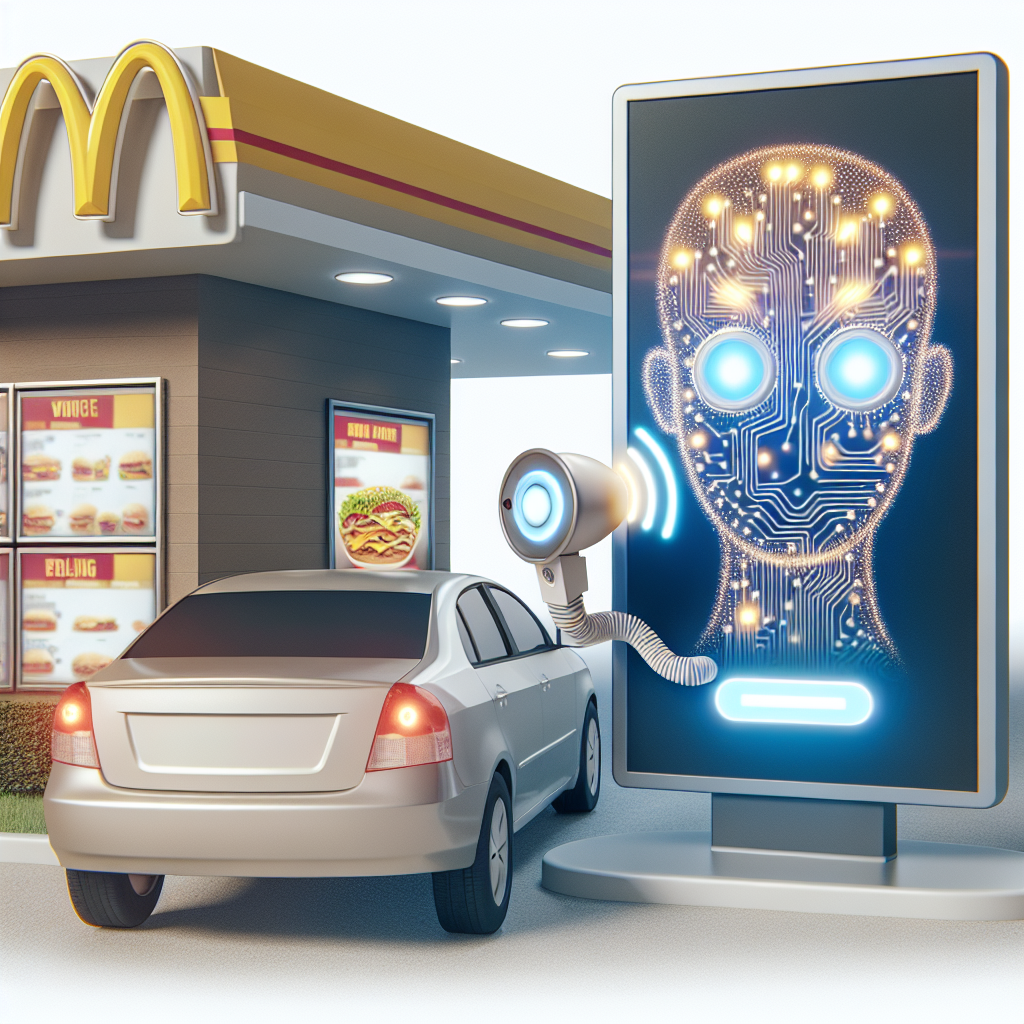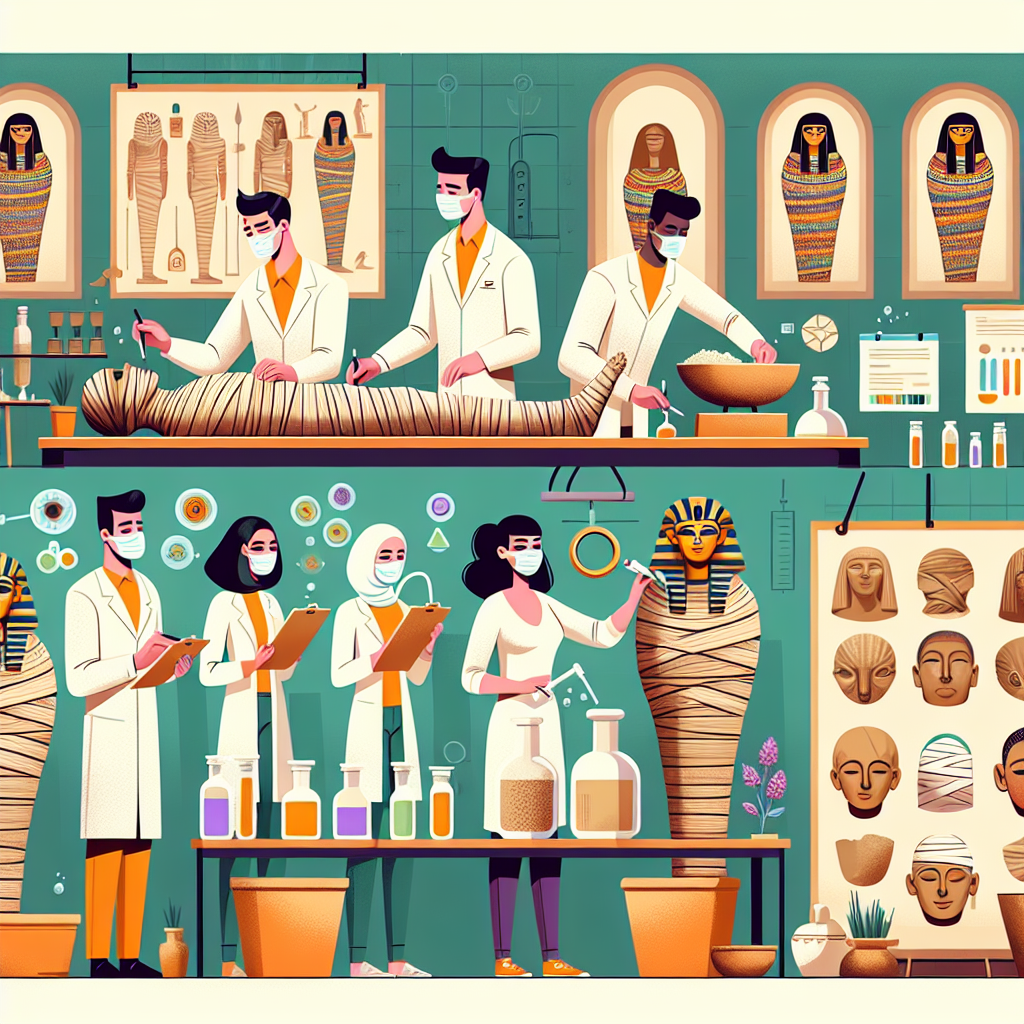Two hospitals in London are trying out a new artificial intelligence (AI) technology to find out if patients are at risk of developing type 2 diabetes up to ten years before it actually happens. The Imperial College and Chelsea and Westminster Hospital NHS Foundation Trusts are working on an AI system called Aire-DM. This system looks at patients’ heart tests, known as electrocardiograms (ECGs), to spot early signs of diabetes that doctors might miss. They plan to start clinical trials in 2025 to see how well this new method works. So far, the AI has shown it can identify risk about 70% of the time, and adding more patient details like age, gender, and health issues such as high blood pressure or obesity can make its predictions even better.
Dr. Fu Siong Ng, the main researcher, explains that the ECG data is a good starting point for assessing risk, but adding other background information makes the AI even more accurate. An ECG is a test that measures the heart’s electrical activity, showing how well it beats. Dr. Ng points out that the changes in the ECG that the AI picks up are often too small and complex for even the best doctors to notice. The AI looks at a mix of subtle signs instead of focusing on just one part of the ECG.
As part of the study, around 1,000 patients from both hospitals will have their ECGs checked by the AI to see how well it can predict diabetes risk. Although this technology isn’t ready for everyday use yet, the researchers are hopeful that it could be used more widely in the NHS in the next five years. The British Heart Foundation, which is funding this research, believes that finding diabetes risk early could help prevent serious health problems like heart attacks and strokes.
Professor Bryan Williams from the British Heart Foundation highlights how important this research is. He says that using advanced AI to analyze ECGs can reveal important information that regular health data might miss. This could change how doctors predict the risk of type 2 diabetes, potentially years before it develops. Type 2 diabetes is becoming a bigger health problem that increases the chances of heart disease, but with the right steps, people can lower their risk. Dr. Faye Riley from Diabetes UK adds that finding type 2 diabetes early is crucial since many people don’t even know they have it. In England, about 1.2 million people are unaware they have diabetes, with even more at high risk. AI screening could help identify these individuals early, allowing them to get the support they need to avoid serious complications like heart failure and vision loss.
Original news source: Hospitals trial AI to spot type 2 diabetes risk (BBC)
🎧 Listen:
Slow
Normal
Fast
📖 Vocabulary:
| 1 | artificial | Made by humans, not natural |
| 2 | technology | The use of science to create useful things |
| 3 | developing | Growing or becoming more advanced |
| 4 | clinical | Related to medical treatment and tests |
| 5 | trials | Tests to see if something works |
| 6 | predictions | Guessing what might happen in the future |
| 7 | assessing | Evaluating or judging something |
| 8 | subtle | Not obvious, very slight |
| 9 | complex | Complicated and not simple |
| 10 | researchers | People who study and investigate things |
| 11 | funding | Money provided for a specific purpose |
| 12 | advanced | More developed or skilled |
| 13 | analyze | To examine something in detail |
| 14 | reveal | To show or make something known |
| 15 | screening | Checking for a disease or condition |
Group or Classroom Activities
Warm-up Activities:
– CHARADES
Instructions: Students take turns acting out terms related to the article, such as “artificial intelligence,” “diabetes,” “ECG,” and “clinical trials” without speaking. The rest of the class has to guess the term.
– MIND MAP
Instructions: On a whiteboard or large paper, students create a mind map based on the article. They start with “AI in Healthcare” in the center and branch out with key points like “diabetes risk,” “ECG,” “clinical trials,” and “NHS.” Each student can add their own ideas to expand the map.
– OPINION POLL
Instructions: Pose a question related to the article, such as “Do you think AI will significantly improve healthcare?” Students walk around the room and ask their classmates for their opinions, recording the responses. Afterward, they share the results with the class.
– HEADLINE CREATION
Instructions: Students work in pairs to create catchy headlines for the article. They can discuss the most important points and then brainstorm creative titles that capture the essence of the story. Each pair presents their headline to the class.
– FUTURE PREDICTIONS
Instructions: Students discuss and write down their predictions about the future of AI in healthcare, particularly in relation to diabetes and other diseases. They can then share their predictions in small groups and discuss the implications of these advancements.
🤔 Comprehension Questions:
1. What is the name of the AI system being tested by the two hospitals in London?
2. How does the AI system Aire-DM determine if patients are at risk of developing type 2 diabetes?
3. What other patient details can improve the AI’s predictions about diabetes risk?
4. Why does Dr. Fu Siong Ng believe ECG data is a good starting point for assessing diabetes risk?
5. How many patients will have their ECGs checked by the AI as part of the study?
6. What are some serious health problems that early identification of diabetes risk could help prevent?
7. How does the British Heart Foundation view the importance of this research on diabetes risk prediction?
8. Why is it crucial to find type 2 diabetes early, according to Dr. Faye Riley from Diabetes UK?
Go to answers ⇩
🎧✍️ Listen and Fill in the Gaps:
Two hospitals in London are trying out a new artificial intelligence (AI) technology to find out if patients are at risk of developing type 2 (1)______ up to ten years before it actually happens. The Imperial College and Chelsea and Westminster (2)______ NHS Foundation Trusts are working on an AI system called Aire-DM. This system looks at patients’ heart tests, known as electrocardiograms (ECGs), to spot early signs of diabetes that (3)______ might miss. They plan to start clinical trials in 2025 to see how well this new (4)______ works. So far, the AI has shown it can identify risk about 70% of the time, and adding more patient details like age, gender, and health issues such as high blood pressure or obesity can make its predictions even better.
Dr. Fu Siong Ng, the main researcher, explains that the ECG data is a good starting (5)______ for assessing risk, but adding other background information (6)______ the AI even more accurate. An ECG is a test that measures the heart’s electrical (7)______, showing how well it beats. Dr. Ng points out that the changes in the ECG that the AI picks up are often too small and complex for even the best doctors to notice. The AI looks at a mix of (8)______ signs instead of focusing on just one part of the ECG.
As part of the study, around 1,000 patients from both hospitals will have their ECGs checked by the AI to see how well it can predict diabetes risk. Although this (9)______ isn’t ready for everyday use yet, the (10)______ers are (12)______ that it could be used more widely in the NHS in the next five years. The British Heart Foundation, which is funding this research, believes that finding diabetes risk early could help prevent serious health problems like heart attacks and strokes.
Professor Bryan Williams from the British Heart Foundation highlights how important this research is. He says that using advanced AI to analyze ECGs can reveal important information that regular health data might miss. This could (13)______ how doctors predict the risk of type 2 diabetes, potentially years before it develops. Type 2 diabetes is becoming a bigger health problem that increases the chances of (14)______ disease, but with the right (15)______, people can lower their risk. Dr. Faye Riley from Diabetes UK adds that finding type 2 diabetes early is crucial since many people don’t even know they have it. In England, about 1.2 million people are unaware they have diabetes, with even more at high risk. AI screening could help identify these individuals early, allowing them to get the support they need to avoid serious (16)______ like heart failure and vision loss.
Go to answers ⇩
💬 Discussion Questions:
Students can ask a partner these questions, or discuss them as a group.
1. What is your opinion on using artificial intelligence in healthcare?
2. How would you feel if a machine could predict your health risks?
3. Do you think it’s important to find health problems early? Why or why not?
4. Have you or someone you know ever been diagnosed with diabetes? What was that experience like?
5. What do you think are the benefits of using AI to analyze health data?
6. How do you feel about the idea of doctors relying on AI for diagnosis?
7. Do you think people are generally aware of the risks of type 2 diabetes? Why or why not?
8. What is a healthy lifestyle to you, and how do you think it can help prevent diseases like diabetes?
9. How would you react if you found out you were at risk for a disease like diabetes?
10. Do you think everyone should have regular health check-ups? Why or why not?
11. What is your opinion on the accuracy of AI compared to human doctors?
12. How do you think technology will change healthcare in the next ten years?
13. Do you think it’s fair for AI to make decisions about people’s health? Why or why not?
14. What other health issues do you think could benefit from AI technology?
15. How would you feel if your personal health data was used to train an AI system?
Individual Activities
📖💭 Vocabulary Meanings:
Match each word to its meaning.
Words:
1. artificial
2. technology
3. developing
4. clinical
5. trials
6. predictions
7. assessing
8. subtle
9. complex
10. researchers
11. funding
12. advanced
13. analyze
14. reveal
15. screening
Meanings:
(A) Guessing what might happen in the future
(B) Made by humans, not natural
(C) The use of science to create useful things
(D) Related to medical treatment and tests
(E) Tests to see if something works
(F) To examine something in detail
(G) Money provided for a specific purpose
(H) To show or make something known
(I) Growing or becoming more advanced
(J) Complicated and not simple
(K) Checking for a disease or condition
(L) Evaluating or judging something
(M) People who study and investigate things
(N) Not obvious, very slight
(O) More developed or skilled
Go to answers ⇩
🔡 Multiple Choice Questions:
1. What is the name of the AI system being tested for diabetes risk prediction?
(a) Diabetech
(b) HealthAI
(c) CardioPredict
(d) Aire-DM
2. Which two hospitals in London are involved in the AI diabetes research?
(a) St. Thomas’ Hospital and Guy’s Hospital
(b) Royal London Hospital and University College London Hospital
(c) King’s College Hospital and Barts Health NHS Trust
(d) Imperial College and Chelsea and Westminster Hospital
3. What type of test does the AI system analyze to assess diabetes risk?
(a) Blood tests
(b) Electrocardiograms (ECGs)
(c) MRI scans
(d) X-rays
4. How accurate has the AI shown to be in identifying diabetes risk so far?
(a) About 70% of the time
(b) About 50% of the time
(c) About 90% of the time
(d) About 30% of the time
5. What additional patient details can improve the AI’s predictions?
(a) Height and weight only
(b) Family history of diseases
(c) Age, gender, and health issues
(d) Lifestyle choices like diet and exercise
6. How many patients will have their ECGs checked by the AI as part of the study?
(a) Around 1,000 patients
(b) Around 500 patients
(c) Around 2,000 patients
(d) Around 1,500 patients
7. What serious health problems could early detection of diabetes help prevent?
(a) Cancers and infections
(b) Heart attacks and strokes
(c) Allergies and asthma
(d) Broken bones and sprains
8. How many people in England are unaware they have diabetes, according to the article?
(a) About 500,000 people
(b) About 2 million people
(c) About 1.2 million people
(d) About 750,000 people
Go to answers ⇩
🕵️ True or False Questions:
1. Adding more patient information, such as age and health issues, can worsen the AI’s predictions.
2. So far, the AI has been able to identify diabetes risk with about 70% accuracy.
3. Two hospitals in London are testing a new AI technology to predict the risk of developing type 2 diabetes up to ten years in advance.
4. The AI system being used is called Aire-DM and analyzes patients’ electrocardiograms (ECGs) to find early signs of diabetes.
5. In England, more than 1.2 million people are aware they have diabetes, highlighting the importance of early detection through AI screening.
6. Around 2,000 patients from the participating hospitals will have their ECGs analyzed by the AI as part of the study.
7. The British Heart Foundation is funding this research because early detection of diabetes risk can help prevent serious health issues.
8. Clinical trials for this AI technology are set to begin in 2023.
Go to answers ⇩
📝 Write a Summary:
Write a summary of this news article in two sentences.
Check your writing now with the best free AI for English writing!
Writing Questions:
Answer the following questions. Write as much as you can for each answer.
Check your answers with our free English writing assistant!
1. What is the purpose of the AI system called Aire-DM being tested in London hospitals?
2. How does the AI improve its predictions about diabetes risk?
3. Why is it important to find out if someone is at risk of type 2 diabetes early?
4. What are some serious health problems that can result from not detecting diabetes early?
5. How many people in England are unaware that they have diabetes, according to the article?
✅ Answers
🤔✅ Comprehension Question Answers:
1. What is the name of the AI system being tested by the two hospitals in London?
The name of the AI system being tested is Aire-DM.
2. How does the AI system Aire-DM determine if patients are at risk of developing type 2 diabetes?
Aire-DM determines diabetes risk by analyzing patients’ electrocardiograms (ECGs) to spot early signs that doctors might miss.
3. What other patient details can improve the AI’s predictions about diabetes risk?
Other patient details that can improve predictions include age, gender, and health issues such as high blood pressure or obesity.
4. Why does Dr. Fu Siong Ng believe ECG data is a good starting point for assessing diabetes risk?
Dr. Fu Siong Ng believes ECG data is a good starting point because it provides valuable information about the heart’s electrical activity, which can indicate risk, and adding other background information makes the AI’s predictions more accurate.
5. How many patients will have their ECGs checked by the AI as part of the study?
Around 1,000 patients will have their ECGs checked by the AI as part of the study.
6. What are some serious health problems that early identification of diabetes risk could help prevent?
Early identification of diabetes risk could help prevent serious health problems like heart attacks and strokes.
7. How does the British Heart Foundation view the importance of this research on diabetes risk prediction?
The British Heart Foundation views this research as very important because it could change how doctors predict diabetes risk and help identify it years before it develops.
8. Why is it crucial to find type 2 diabetes early, according to Dr. Faye Riley from Diabetes UK?
According to Dr. Faye Riley, finding type 2 diabetes early is crucial because many people don’t even know they have it, and early identification can help them get the support they need to avoid serious complications.
Go back to questions ⇧
🎧✍️✅ Listen and Fill in the Gaps Answers:
(1) diabetes
(2) Hospital
(3) doctors
(4) method
(5) point
(6) makes
(7) activity
(8) subtle
(9) technology
(10) research
(11) researchers
(12) hopeful
(13) change
(14) heart
(15) steps
(16) complications
Go back to questions ⇧
📖💭✅ Vocabulary Meanings Answers:
1. artificial
Answer: (B) Made by humans, not natural
2. technology
Answer: (C) The use of science to create useful things
3. developing
Answer: (I) Growing or becoming more advanced
4. clinical
Answer: (D) Related to medical treatment and tests
5. trials
Answer: (E) Tests to see if something works
6. predictions
Answer: (A) Guessing what might happen in the future
7. assessing
Answer: (L) Evaluating or judging something
8. subtle
Answer: (N) Not obvious, very slight
9. complex
Answer: (J) Complicated and not simple
10. researchers
Answer: (M) People who study and investigate things
11. funding
Answer: (G) Money provided for a specific purpose
12. advanced
Answer: (O) More developed or skilled
13. analyze
Answer: (F) To examine something in detail
14. reveal
Answer: (H) To show or make something known
15. screening
Answer: (K) Checking for a disease or condition
Go back to questions ⇧
🔡✅ Multiple Choice Answers:
1. What is the name of the AI system being tested for diabetes risk prediction?
Answer: (d) Aire-DM
2. Which two hospitals in London are involved in the AI diabetes research?
Answer: (d) Imperial College and Chelsea and Westminster Hospital
3. What type of test does the AI system analyze to assess diabetes risk?
Answer: (b) Electrocardiograms (ECGs)
4. How accurate has the AI shown to be in identifying diabetes risk so far?
Answer: (a) About 70% of the time
5. What additional patient details can improve the AI’s predictions?
Answer: (c) Age, gender, and health issues
6. How many patients will have their ECGs checked by the AI as part of the study?
Answer: (a) Around 1,000 patients
7. What serious health problems could early detection of diabetes help prevent?
Answer: (b) Heart attacks and strokes
8. How many people in England are unaware they have diabetes, according to the article?
Answer: (c) About 1.2 million people
Go back to questions ⇧
🕵️✅ True or False Answers:
1. Adding more patient information, such as age and health issues, can worsen the AI’s predictions. (Answer: False)
2. So far, the AI has been able to identify diabetes risk with about 70% accuracy. (Answer: True)
3. Two hospitals in London are testing a new AI technology to predict the risk of developing type 2 diabetes up to ten years in advance. (Answer: True)
4. The AI system being used is called Aire-DM and analyzes patients’ electrocardiograms (ECGs) to find early signs of diabetes. (Answer: True)
5. In England, more than 1.2 million people are aware they have diabetes, highlighting the importance of early detection through AI screening. (Answer: False)
6. Around 2,000 patients from the participating hospitals will have their ECGs analyzed by the AI as part of the study. (Answer: False)
7. The British Heart Foundation is funding this research because early detection of diabetes risk can help prevent serious health issues. (Answer: True)
8. Clinical trials for this AI technology are set to begin in 2023. (Answer: False)
Go back to questions ⇧















